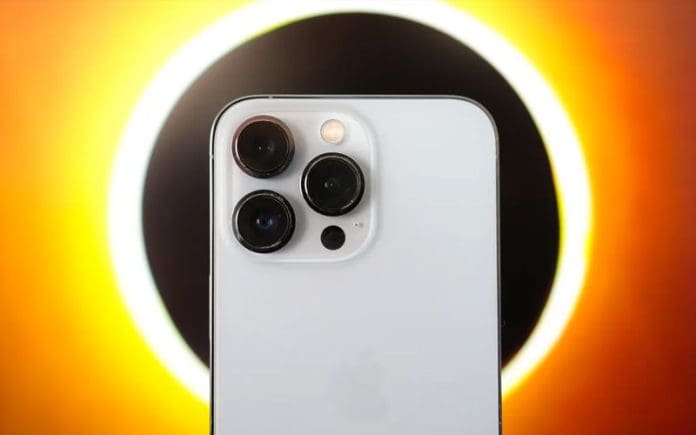As the world marvels at the celestial phenomenon of a solar eclipse, enthusiasts and casual observers alike rush to capture the breathtaking moment with their cameras and mobile devices. However, while witnessing such an event can be awe-inspiring, it’s crucial to recognize the potential risks posed to electronic devices during these rare occurrences.
Solar eclipses occur when the moon passes between the sun and Earth, casting a shadow on our planet. During a total solar eclipse, the sun’s bright corona is visible, providing a stunning spectacle. However, the intense solar radiation emitted during this phenomenon can pose dangers to unprotected eyes and, surprisingly, to the electronic components of cameras and mobile devices.
The primary threat to electronic devices during a solar eclipse is the focused sunlight that can enter through the camera lens. The intense light and heat can cause damage to the delicate sensors and internal components of cameras and mobile devices, including smartphones and tablets. Here’s how solar eclipses can potentially harm your beloved gadgets:
- Sensor Damage: The sensors in cameras and smartphones are highly sensitive to light. During a solar eclipse, the sudden change in lighting conditions can overwhelm these sensors, leading to overexposure or even permanent damage. The concentrated sunlight can cause pixels on the sensor to burn out, resulting in irreparable harm to the device’s camera functionality.
- Lens Damage: Just as staring directly at the sun can harm your eyes, exposing your camera lens to direct sunlight during an eclipse can cause similar damage. The intense heat can warp or crack the lens, rendering it unusable. Even if the damage isn’t immediately apparent, it can affect the quality of images captured in the future.
- Internal Components: Beyond the lens and sensor, other internal components of cameras and mobile devices can also be vulnerable to the heat generated during a solar eclipse. Excessive heat can degrade battery performance, causing it to lose its ability to hold a charge or even leading to a battery failure. Additionally, prolonged exposure to high temperatures can affect the overall functionality of the device, potentially causing it to malfunction or become inoperable.
- Software Glitches: Sudden changes in lighting conditions during a solar eclipse can also impact the software algorithms that control camera settings. This may result in inaccuracies in exposure calculations or autofocus errors, leading to subpar images or videos.
To safeguard your devices during a solar eclipse and prevent potential damage, consider the following precautions:
- Use Proper Filters: Invest in solar filters specifically designed for cameras and lenses to block harmful UV and infrared radiation. These filters are essential for safely photographing the sun during an eclipse without risking damage to your equipment.
- Avoid Prolonged Exposure: Limit the amount of time your devices are exposed to direct sunlight during the eclipse. Take breaks between shots to allow your camera or smartphone to cool down and prevent overheating.
- Monitor Temperature: Keep an eye on the temperature of your devices during the eclipse. If they become uncomfortably hot to the touch, it’s a sign that they may be at risk of damage. Move to a cooler environment or shade to prevent overheating.
- Follow Manufacturer Guidelines: Refer to the manufacturer’s recommendations for your specific camera or mobile device regarding usage in extreme conditions. Adhering to these guidelines can help minimize the risk of damage during the eclipse.
While capturing the beauty of a solar eclipse can be a memorable experience, it’s essential to prioritize the safety of your electronic devices. By taking precautions and using proper equipment, you can enjoy the celestial spectacle without putting your cameras and mobile devices at risk of damage. Remember, the safety of your equipment is just as important as the awe-inspiring moments you capture.









